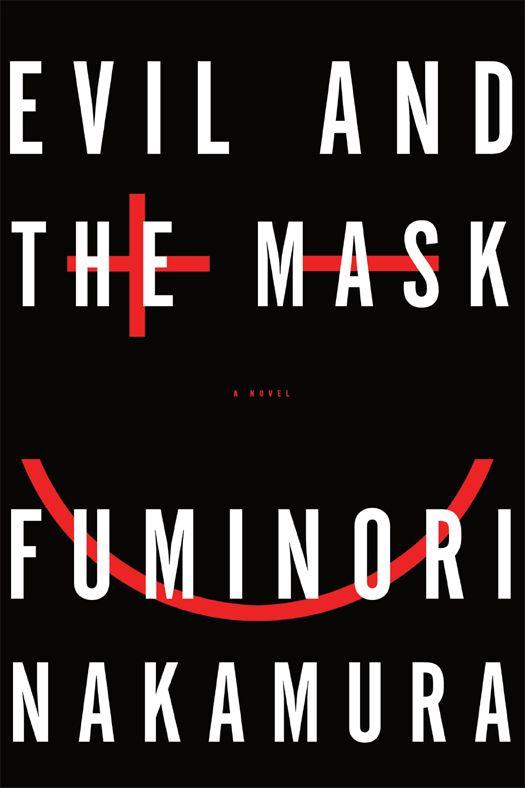
Evil and the Mask
کتاب های مرتبط
- اطلاعات
- نقد و بررسی
- دیدگاه کاربران
نقد و بررسی

April 29, 2013
At the outset of this bleak, melancholy stand-alone from Nakamura (The Thief), 11-year-old Fumihiro Kuki learns from his father, Shozo, that he’s next in the family dynasty to become “a personification of evil.” Fumihiro is to become not just a mere assassin but a true monster: someone able to foment civil war in a small country, sell arms to both sides, and then rebuild the nation’s infrastructure using the Kuki family’s strong military-industrial ties. Shozo threatens to debauch Kaori, Fumihiro’s beloved adopted sister, if he doesn’t cooperate. Fumihiro’s subsequent obsession with and desire to protect Kaori, his ideal of goodness and purity, forms the crux of this novel that deals with basic questions of good and evil, guilt and remorse. Cryptic detectives, smoky nightclubs, and murky streets in Japanese suburbs add to the noir sensibility. At times bizarre, at times hallucinatory, the story is always provocative.

July 1, 2013
A moneyed, aimless Japanese kid struggles against the curse his father has laid on him. Like his own father before him, Shozo Kuki has great things in mind for his youngest son. Even before Fumihiro Kuki turns 12, his father tells him that he plans to make him "a cancer" whose life will be dedicated to making other lives miserable. As the months go by, Fumihiro's father hints at the particulars of the plan, which reiterates a family pattern generations old. After introducing a girl named Kaori into his household as Fumihiro's playmate, confidante and intimate, Kuki senior plans to have her gang-raped as his son looks on, destroying his belief in the goodness of humanity and his own power to battle its evil. The only way Fumihiro can rescue himself and Kaori, whom he has indeed fallen in love with, is to kill his father. Yet not even the perfect crime Fumihiro hatches and executes can save him from his father's clutches, for committing a murder at such a tender age permanently warps his mind and estranges him from Kaori. And when he comes of age in the shadow of his father's mysterious disappearance, Fumihiro's attempts to find out more information about Kaori, now a hostess in a nightclub, and protect her from whoever else has taken a close interest in her welfare, only entangles him more deeply with the anti-government terrorist group JL and with his own deeply divided nature. A spare, fast-moving parable whose lure, even more than that of The Thief (2012), is more philosophical and abstract than visceral.
COPYRIGHT(2013) Kirkus Reviews, ALL RIGHTS RESERVED.

June 1, 2013
In this second novel by the award-winning author of The Thief, we are introduced to an 11-year-old boy, Fumihiro, and his elderly father who have a dark, complicated relationship. The rich and privileged father is a deranged man who charges his son to be "a cancer on the world." Fumihiro is to be educated in the art of destruction and unhappiness to continue the work set into motion by his evil parent and other members of his twisted family. In order to break his spirit, Fumihiro is allowed to fall in love--only to have that love torn from him to destroy his happiness. When the book jumps into the future, we find the main character has changed his identity in an attempt to exact revenge against his father. He also seeks out the love of his life. But before Fumihiro can carry out his plan, other people emerge from the shadows to confront him. He must use the evil he has harnessed to shift his own destiny. VERDICT This literary thriller steeps the reader in humanity's dark nature and the struggle of those who try to resist their own moral corruption. Fans of such Japanese writers as Miyuki Miyabe (Shadow Family), Natsuo Kirino (Out; Grotesque), and Keigo Higashino (The Devotion of Suspect X) will enjoy reading Nakamura.--Ron Samul, New London, CT
Copyright 2013 Library Journal, LLC Used with permission.

Starred review from June 1, 2013
It is tradition in the Kuki family for the patriarch to sire one son to be a cancer. At age 11, Fumihiro Kuki is told that he is to be the cancer. His menacing arms-merchant father promises to show him hell as a teen to ensure that he will wreak havoc on Japanese society, and he even adopts Kaori, an orphan girl, to use as a tool in tormenting his son. Boy and girl fall in love, and Fumihiro kills his father to shield Kaori and avoid his fate. Nakamura cuts abruptly to the present, and thirtysomething Fumihiro has a new face, supplied by an outlaw plastic surgeon, and as he searches for Kaori in a dystopian Japan beset by many human and societal cancers, he believes that his father succeeded. Nakamura's The Thief (2012) won Japan's top literary award. Evil and the Mask is a hard-to-put-down novel of ideas and a savage comment on nihilism, both Japanese and global. It is monstrous, and at times fanciful (e.g., homegrown nihilist-terrorists bombing buildings, killing provincial politicians, and demanding that the prime minister do an impersonation of a Japanese pop star on national TV); and like The Thief, it employs themes used by Mishima, Camus, and Dostoevsky. It may befuddle some Western readers, but it shouldn't be missed.(Reprinted with permission of Booklist, copyright 2013, American Library Association.)

























دیدگاه کاربران